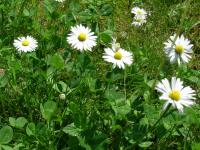a. [ NL. sebaceus, from L. sebum tallow, grease. ] (Physiol.) Pertaining to, or secreting, fat; composed of fat; having the appearance of fat;
Sebaceous cyst (Med.),
Sebaceous glands (Anat.),
a. [ L. sebum tallow: cf. F. sébacique. ] (Chem.) Of or pertaining to fat; derived from, or resembling, fat; specifically, designating an acid (formerly called also
n. [ Heb. sh&ebreve_;bāt. ] The eleventh month of the ancient Hebrew year, approximately corresponding with February. W. Smith (Bibl. Dict.). [ 1913 Webster ]
n. (Chem.) A salt of sebacic acid. [ 1913 Webster ]
n. [ Ar. sebestān the tree: cf. Sp. sebesten. ] (Bot.) The mucilaginous drupaceous fruit of two East Indian trees (Cordia Myxa, and Cordia latifolia), sometimes used medicinally in pectoral diseases. [ 1913 Webster ]
☞ In the West Indies the name is given to the similar fruit of Cordia Sebestana. [ 1913 Webster ]
a. See Sebacic. [ Obs. ] [ 1913 Webster ]
a. [ L. sebum tallow + -ferous. ]
a. [ L. sebum tallow + parere to bring forth. ] (Physiol.) Same as Sebiferous. [ 1913 Webster ]
‖n. [ NL., fr. L. sebum tallow + Gr. &unr_; to flow. ] (Med.) A morbidly increased discharge of sebaceous matter upon the skin; stearrhea. [ 1913 Webster ]


